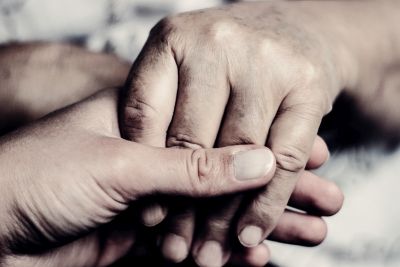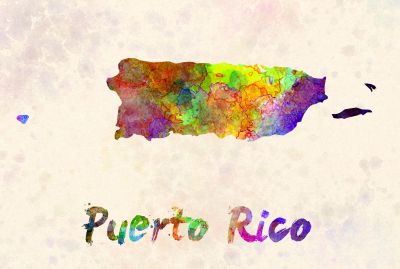Physicians as Healers

October 6, 2017
Suffering.
Physicians are supposed to be good at handling suffering. Building the capacity to witness; to be steadfast in the face of it; to aid during grief and healing. This ability is a unique and challenging skill. No physician would say otherwise. We have to “be there” and endure. (Our private grief and the secondary trauma that we face as a result are important for us to address — with colleagues, family and supportive helpers.)
Our empathy is our power, but also a huge responsibility. How to carry it and be OK takes practice and authentic discussions with role models.
In a very, very short period of time, we've seen a great deal of suffering — from Charlottesville to hurricane after hurricane after hurricane, to earthquakes, and now the largest mass murder in U.S. history. It is overwhelming — even for “experts” who handle suffering on a day-to-day basis.
So what do we do? Yes, that is the usual antidote we as physicians reach for. What is the action to intervene, ameliorate, attenuate? From afar, we may only be able to witness and help mobilize resources and support for people who are suffering. We can generate compassion — not blaming of those who suffer. We can mobilize about ways to address violence from our paid representatives and let them know where we stand. From afar, we can turn to friends, colleagues, students and ask, Are you personally affected? Are you OK? We can be there for one another. To those for whom this is personal, we collectively are here for you — as are counselors, student deans, all of us. Please stop by, chat, email — let us know how you are doing. Let us know how we can help.

Our answers focus on doing. We can also contribute time and energy. Blood drives for areas in need of blood. Fundraisers for money that credible agencies can send to areas of need. We don't have a handle on how many of our colleagues, friends and students have connections to the areas of devastation like Puerto Rico. But we do know that the Drexel Med community extends to this under-resourced island of stranded Americans.
It has been more than two weeks, and U.S. citizens — about 2 million of them — remain without power and safe drinking water. Soon, cholera, typhoid and other illnesses will run rampant. Many people with diabetes are on their last dose of insulin and have no way to refrigerate what little is left. Those at highest risk are the elderly and infants, as well as those with chronic diseases. Once tallied, the number of dead may be mind boggling. The deadliest aspects of this Category 5 hurricane may occur now. The societal collapse that has ensued is a humanitarian crisis afflicting our fellow Americans. Our attention and action are usually focused on the current media cycle. We need to have a longer look than that.
Here is a listing of sites where you can donate to help hurricane victims in Puerto Rico.
United for Puerto Rico was begun by the First Lady of Puerto Rico, the governor's wife, Beatriz Rossellό. Visit the United for Puerto Rico website for PayPal or credit card donations.
Global Giving brings emergency supplies like food, water and medicine and also supports longer-term rebuilding and recovery efforts. Cash donations are accepted via the Global Giving website.
UNICEF: In the space of health for children, it is important to note that Congress has not renewed the Children's Health Insurance Program (CHIP), a much needed program. For children affected by Maria, cash donations are accepted at UNICEF USA.
The National Voluntary Organizations Active in Disaster (National VOAD) accepts individual donations of emergency supplies and construction-related items. VOAD also accepts volunteers who may want to travel to Puerto Rico — later, not now! Remember, after all the media attention drifts elsewhere, the problems and needs remain. Then is more likely a time to go and help.
Here's a link to other organizations that are working to help Caribbean islands impacted by the hurricane.
Airline miles: Those who travel extensively can donate air travel miles to organizations.
Suffering — there is plenty. Consider helping. One by one, our community of caring can help make a difference.
Reach out to us — do you have other ideas about how to help? Want to talk more? Let me know.
Ana Núñez, MD
Associate Dean for Diversity, Equity & Inclusion
Professor of Medicine
Back to Top